For millions of people with disabilities, flying is a logistical nightmare. Whether it’s a lack of support from air carriers, or the federal government’s murky policy and enforcement practices, disabled people routinely encounter barriers that discourage and dissuade them from flying. Of particular concern is the pervasive trend of airlines’ poor handling of wheelchairs and other mobility devices.
The Century Foundation’s new report, Trips Not Taken, Money Not Made: Inaccessible Air Travel Hurts Disabled Travelers and Airlines Alike, includes findings from a first-of-its-kind survey of nearly 100 disabled travelers in the United States, offering new evidence into the costs of airlines’ inaccessibility—not just for disabled travelers, but for our economy and airlines themselves.
As a companion to that report, TCF partnered with Morning Consult to poll more than 2,200 U.S. adults on their views toward airline accessibility. The results were clear: Americans overwhelmingly support steps to improve airline accessibility for people with disabilities.
Nearly 9 in 10 Americans (88 percent) think it’s important for airlines to improve accommodations for flyers with disabilities.
Americans are united in the opinion that improved airline accommodations for flyers with disabilities are important, with two-thirds of adults finding these improvements very important.
FIGURE 1
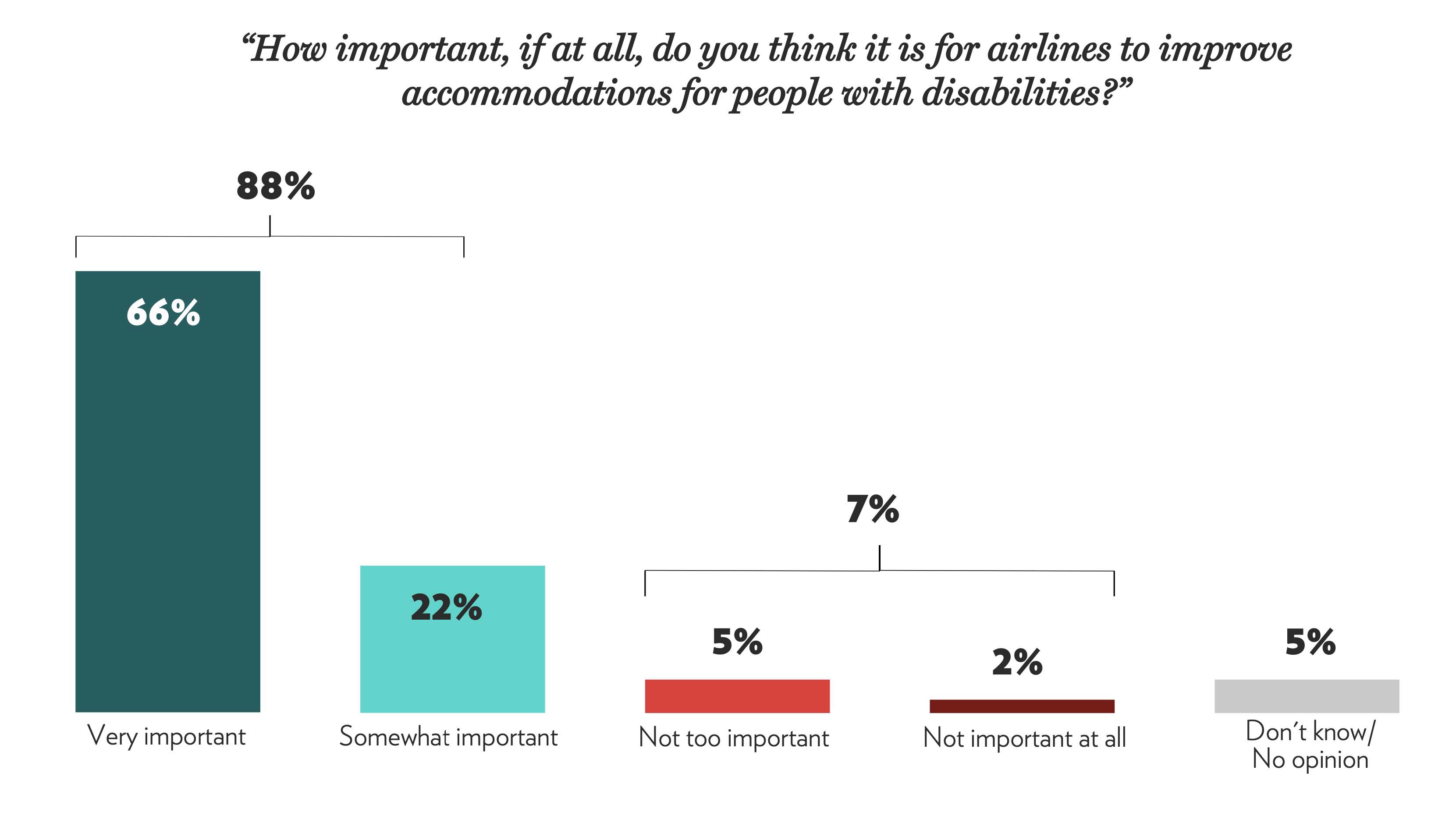
Improved accommodations for disabled individuals are important to adults across key demographic groups, particularly older and/or lower-earning adults.
FIGURE 2
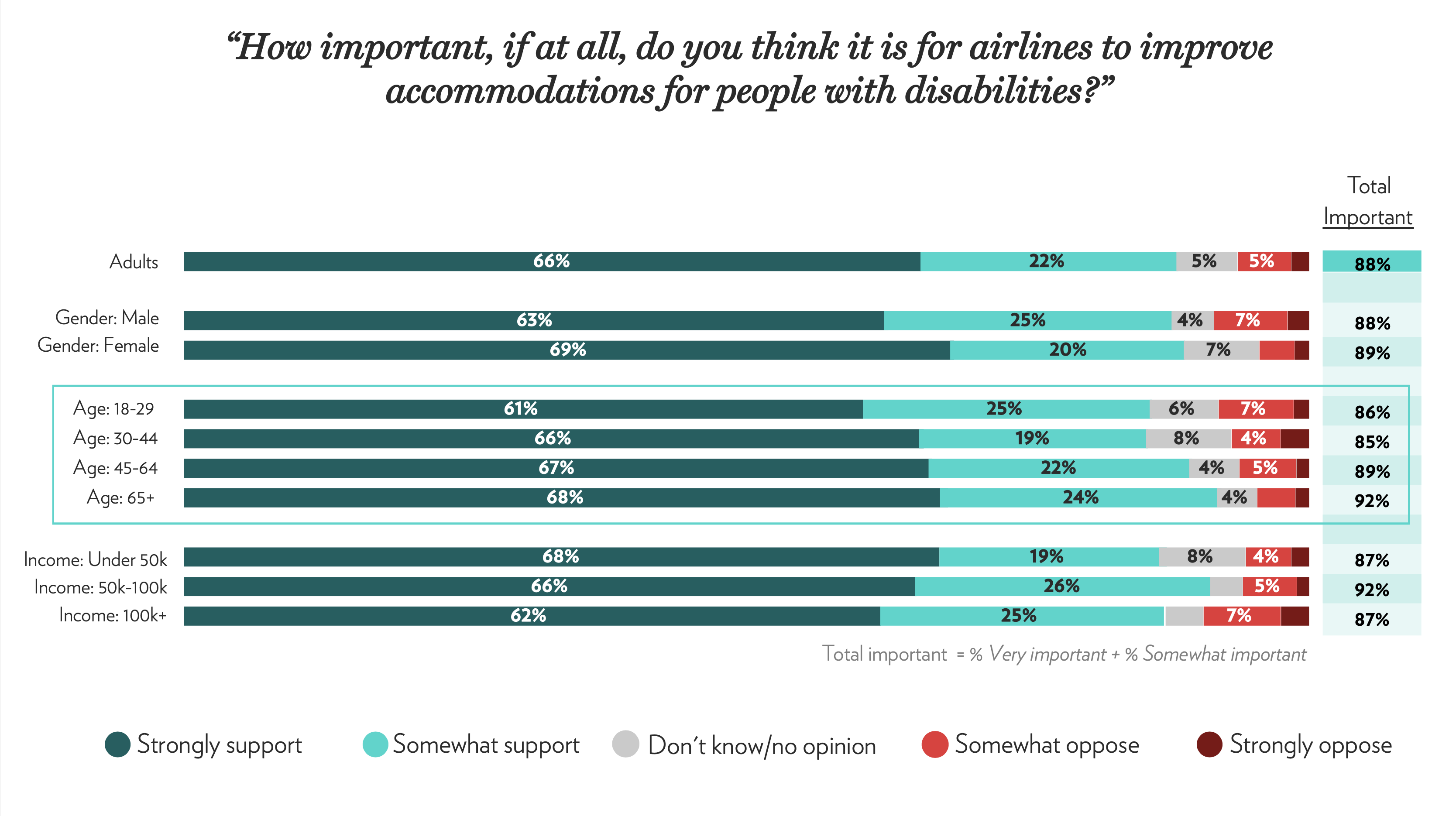
Just over 3 in 4 adults (76 percent) support government action to hold airlines financially accountable when mobility devices like scooters and wheelchairs are damaged during air travel.
A majority of Americans (51 percent) strongly support holding airlines financially accountable for wheelchair damage.
FIGURE 3
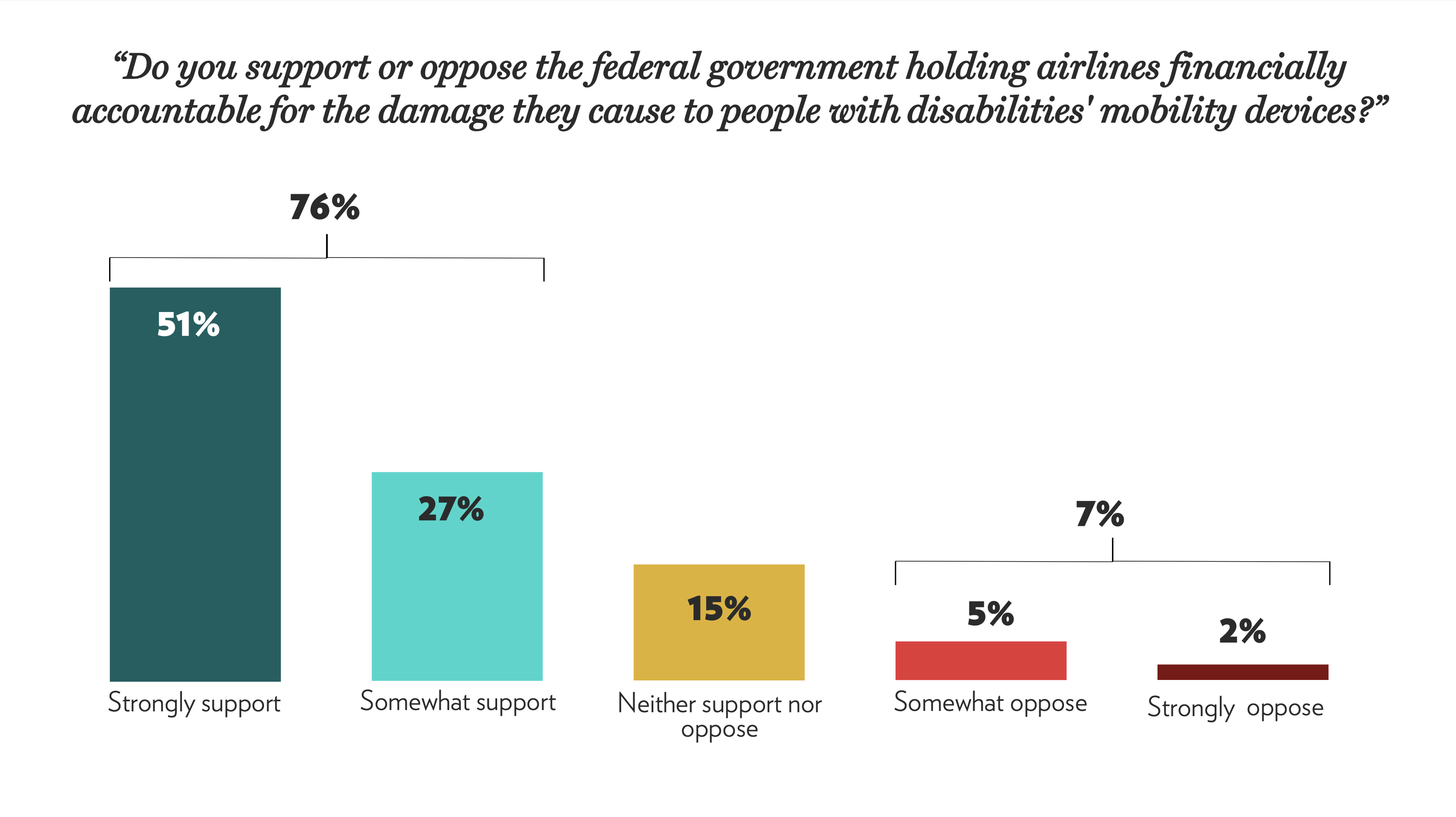
Older adults are especially likely to express strong support for holding airlines financially accountable for damaged mobility devices.
FIGURE 4
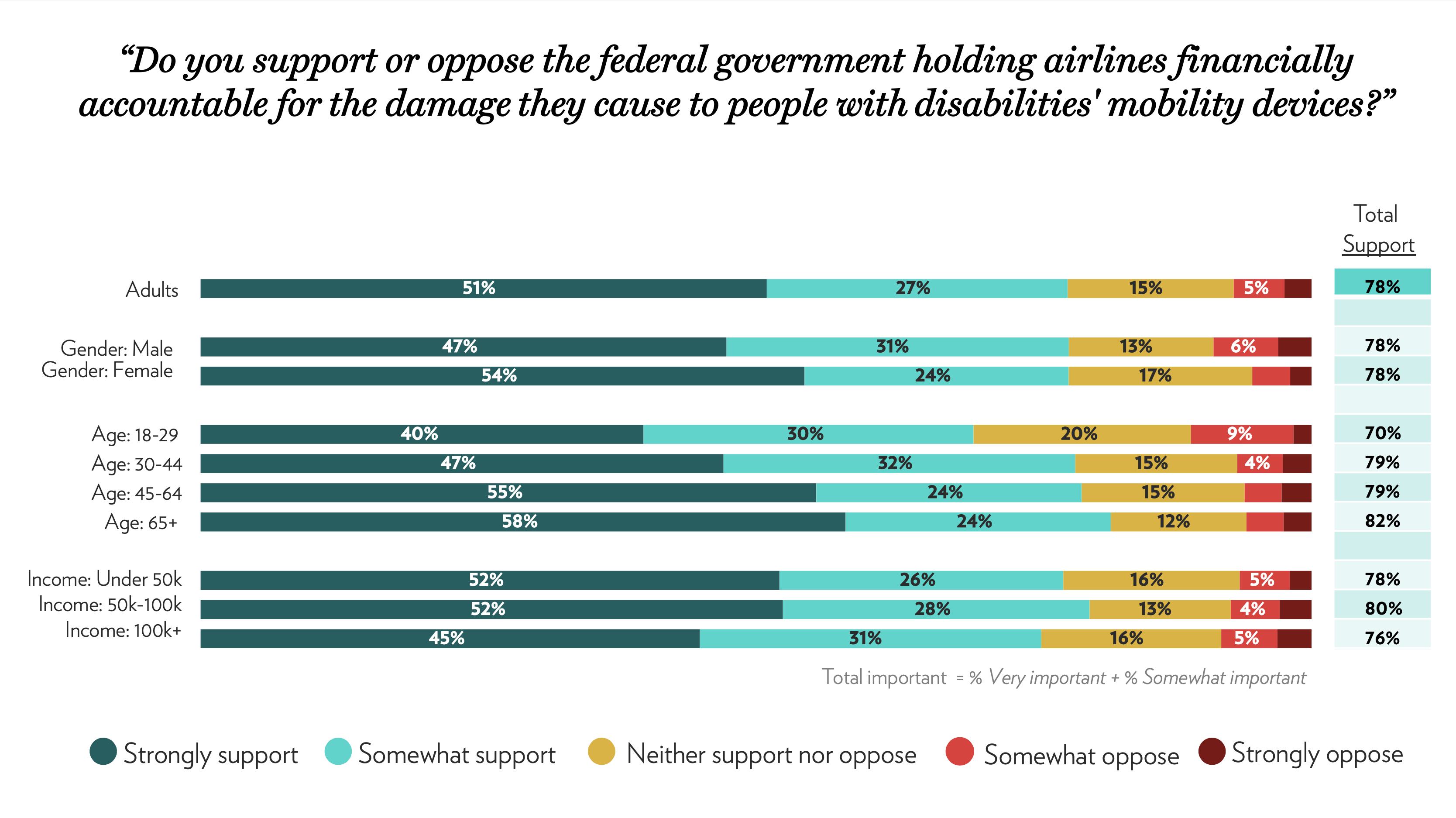
A vast majority of Americans (81 percent) support more training for airline staff by people with disabilities.
FIGURE 5
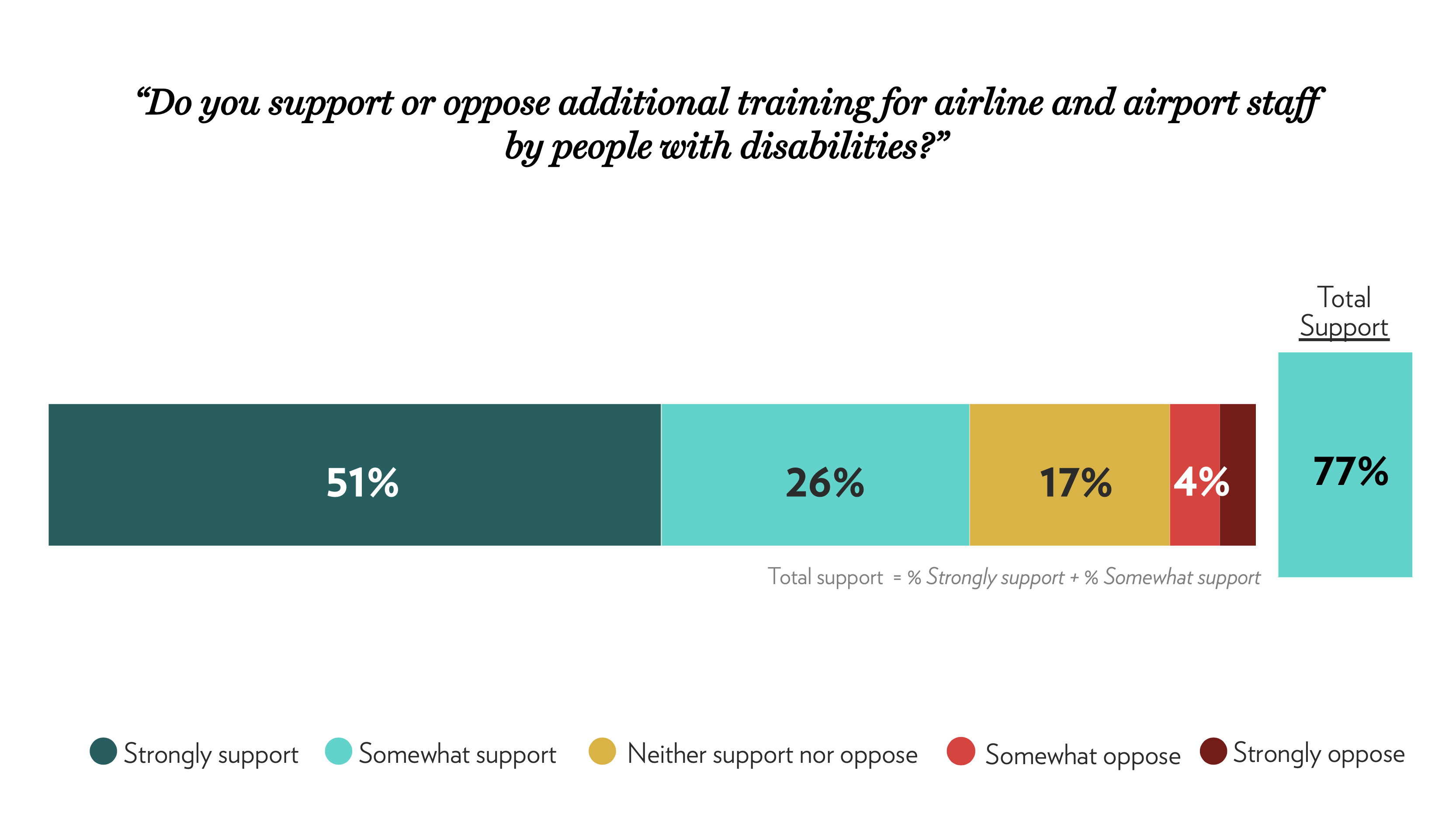
And 7 in 10 Americans (70 percent) support establishing an office of oversight to review customer complaints about damaged mobility devices.
FIGURE 6
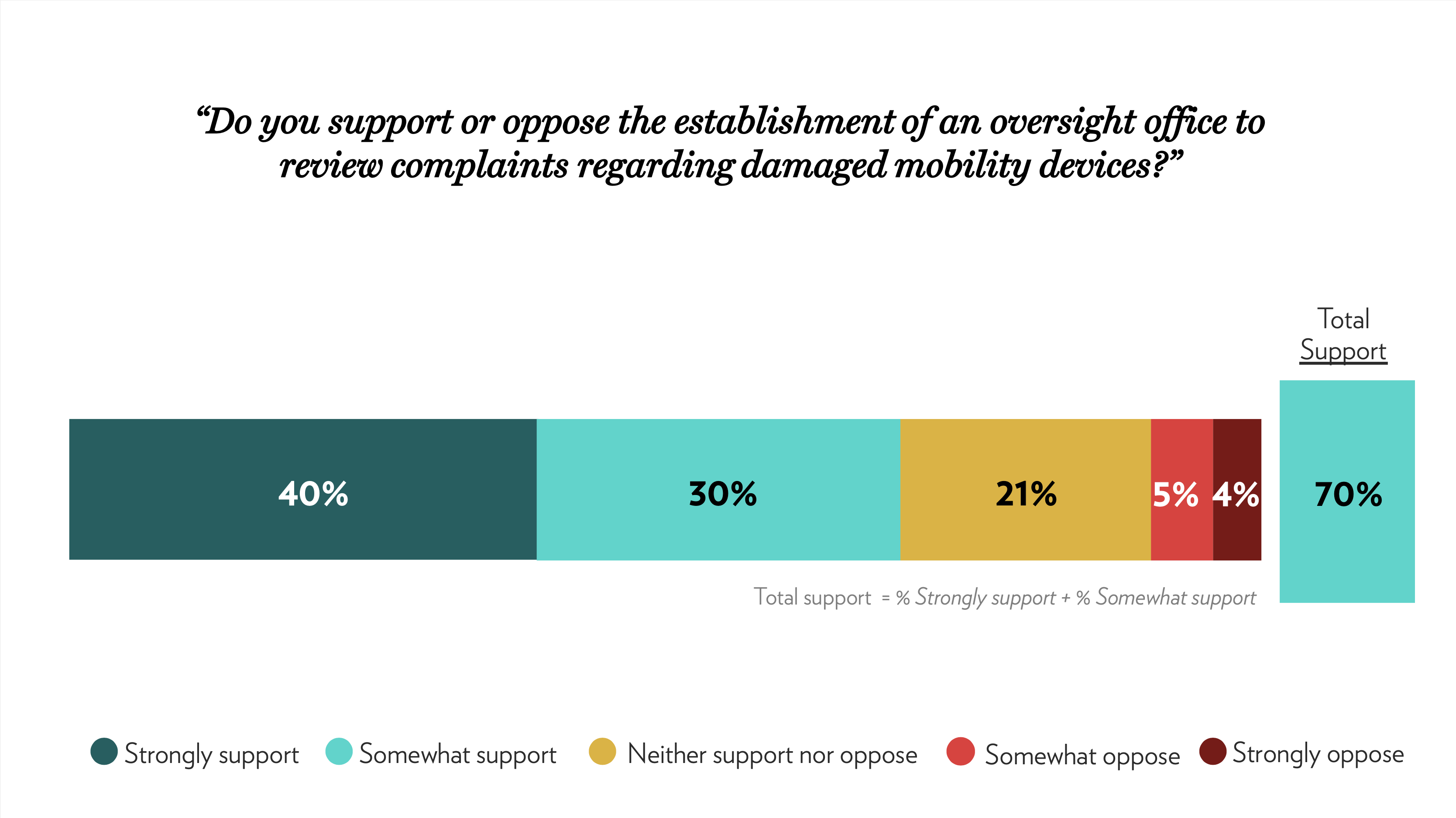
The disability community wants and needs to travel by air, and has the economic means to do so. But the accessibility of airlines, along with failures in compliance and inequitable public policy, has kept many of them away. Americans agree: it’s time to change that.
Methodology
This Morning Consult/The Century Foundation poll was conducted from December 2 to December 4, 2023, among a sample of 2,202 U.S. adults. The interviews were conducted online and the data were weighted to approximate a target sample of adults based on age, gender, race, educational attainment, region, gender by age, and race by educational attainment. Results from the full survey have a margin of error of plus or minus two percentage points.
Tags: disabilityrights, travel, polling
Americans Agree: Air Travel Should Be More Accessible for Disabled Passengers
For millions of people with disabilities, flying is a logistical nightmare. Whether it’s a lack of support from air carriers, or the federal government’s murky policy and enforcement practices, disabled people routinely encounter barriers that discourage and dissuade them from flying. Of particular concern is the pervasive trend of airlines’ poor handling of wheelchairs and other mobility devices.
The Century Foundation’s new report, Trips Not Taken, Money Not Made: Inaccessible Air Travel Hurts Disabled Travelers and Airlines Alike, includes findings from a first-of-its-kind survey of nearly 100 disabled travelers in the United States, offering new evidence into the costs of airlines’ inaccessibility—not just for disabled travelers, but for our economy and airlines themselves.
As a companion to that report, TCF partnered with Morning Consult to poll more than 2,200 U.S. adults on their views toward airline accessibility. The results were clear: Americans overwhelmingly support steps to improve airline accessibility for people with disabilities.
Nearly 9 in 10 Americans (88 percent) think it’s important for airlines to improve accommodations for flyers with disabilities.
Americans are united in the opinion that improved airline accommodations for flyers with disabilities are important, with two-thirds of adults finding these improvements very important.
FIGURE 1
Improved accommodations for disabled individuals are important to adults across key demographic groups, particularly older and/or lower-earning adults.
FIGURE 2
Just over 3 in 4 adults (76 percent) support government action to hold airlines financially accountable when mobility devices like scooters and wheelchairs are damaged during air travel.
A majority of Americans (51 percent) strongly support holding airlines financially accountable for wheelchair damage.
FIGURE 3
Older adults are especially likely to express strong support for holding airlines financially accountable for damaged mobility devices.
FIGURE 4
A vast majority of Americans (81 percent) support more training for airline staff by people with disabilities.
FIGURE 5
And 7 in 10 Americans (70 percent) support establishing an office of oversight to review customer complaints about damaged mobility devices.
FIGURE 6
The disability community wants and needs to travel by air, and has the economic means to do so. But the accessibility of airlines, along with failures in compliance and inequitable public policy, has kept many of them away. Americans agree: it’s time to change that.
Methodology
This Morning Consult/The Century Foundation poll was conducted from December 2 to December 4, 2023, among a sample of 2,202 U.S. adults. The interviews were conducted online and the data were weighted to approximate a target sample of adults based on age, gender, race, educational attainment, region, gender by age, and race by educational attainment. Results from the full survey have a margin of error of plus or minus two percentage points.
Tags: disabilityrights, travel, polling